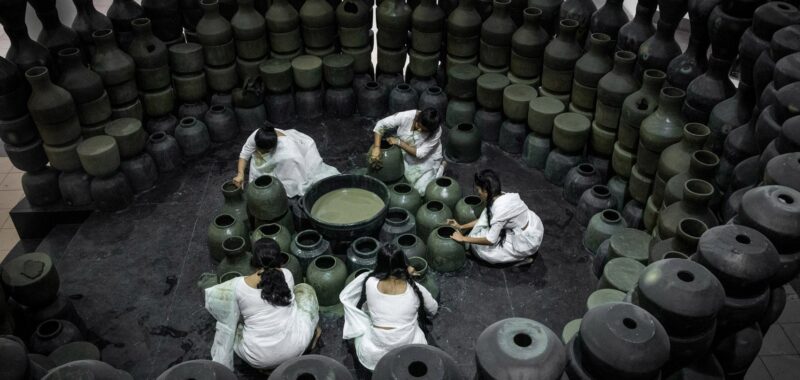Projects by architects Sumayya Vally and David Gianotten are among this year’s Sydney Design Week highlights, chosen by curators Keinton Butler and Amaia Sánchez-Velasco.
Curated by Powerhouse Museum senior curator Keinton Butler and architect Amaia Sánchez-Velasco, Sydney Design Week this year invited a selection of architects, designers and artists to share their visions of alternative futures.
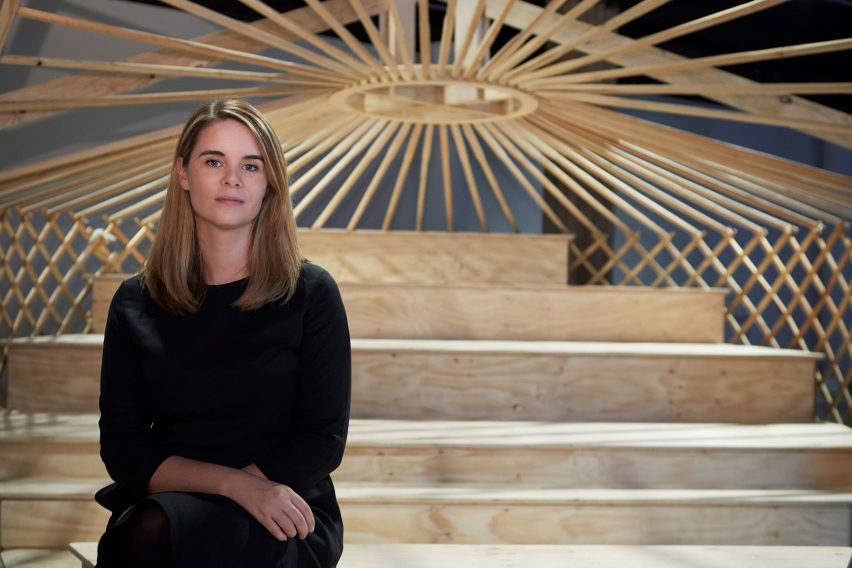
Titled In Between Worlds, this year’s programme spotlighted diverse disciplines including food, film production and space exploration.
“Our discussions began with a review of current social, political, climatic, and technological challenges globally, but more specifically, we chose to focus on the inequitable extraction of natural resources, culture and data in the Global South,” Butler and Sánchez-Velasco told Dezeen.
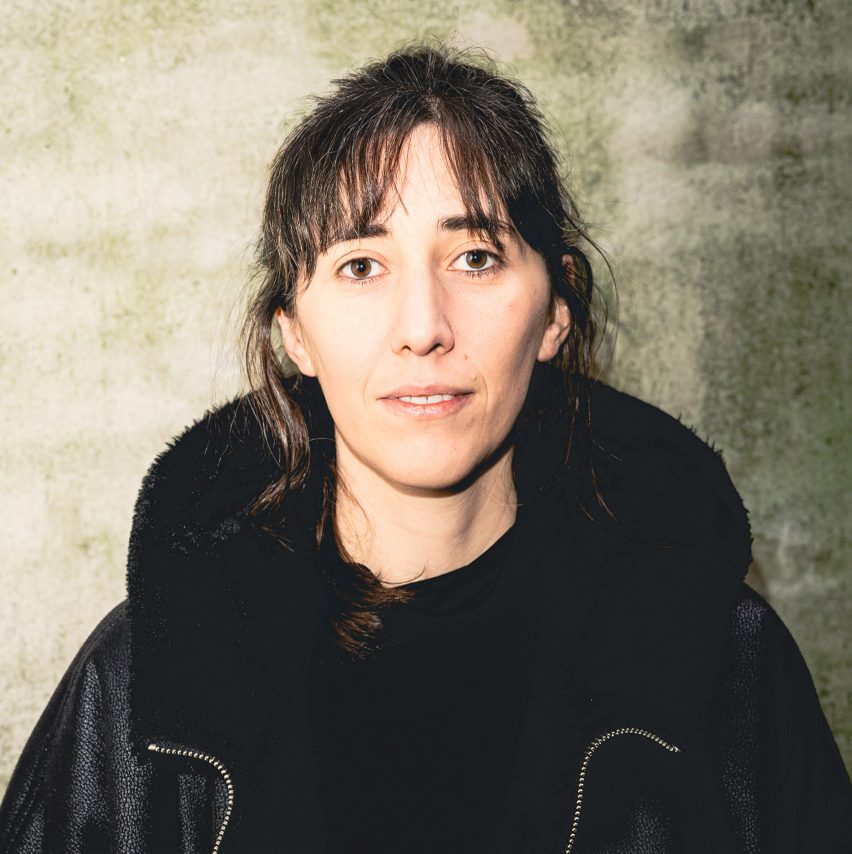
“‘In Between Worlds’ refers to the feeling of standing on a threshold, a space where hope and despair converge and where the enormity of the polycrisis exists alongside the immense potential for transformative action,” they continued.
This year’s Sydney Design Week takes place while its organiser, Powerhouse, is undergoing a major transformation, with two out of the group’s four museums under construction and renovation.
Because of this, the event has been significantly scaled back compared to previous years with only nine talks, tours and workshops listed in the official programme.
Read on for six highlights from the design week selected by the curators.
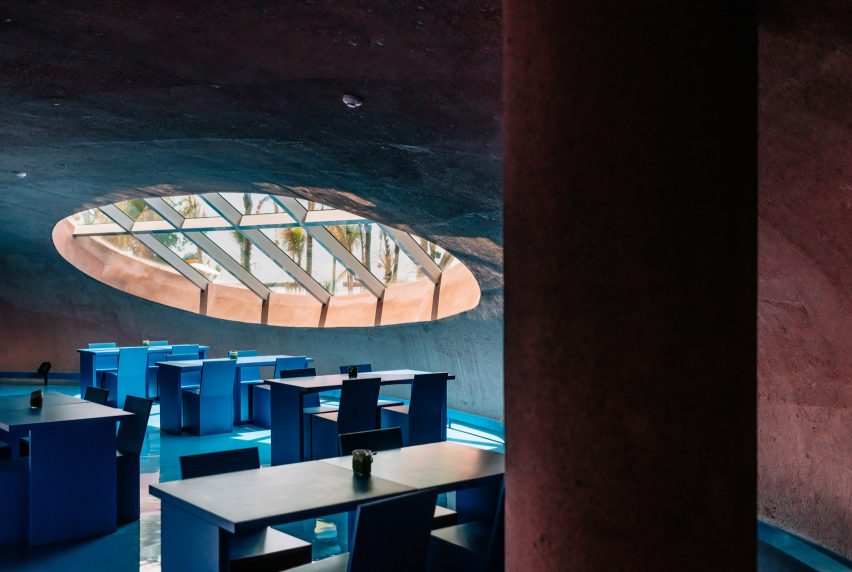
Beyond Architecture by David Gianotten from OMA
David Gianotten, managing partner of Dutch architecture firm OMA, chose to explore the changing role of architects through the prism of the studio’s Potato Head Studios in Bali and Taipei Performing Arts Centre.
The key theme was the importance of “establishing conversations and interactions with multiple actors across different stages of the creative process”, explained Butler and Sánchez-Velasco.
“The understanding of architecture as a mediating field borrows traditional architectural disciplinary tools and means of representation but moves away from top-down decision-making processes,” the duo said.
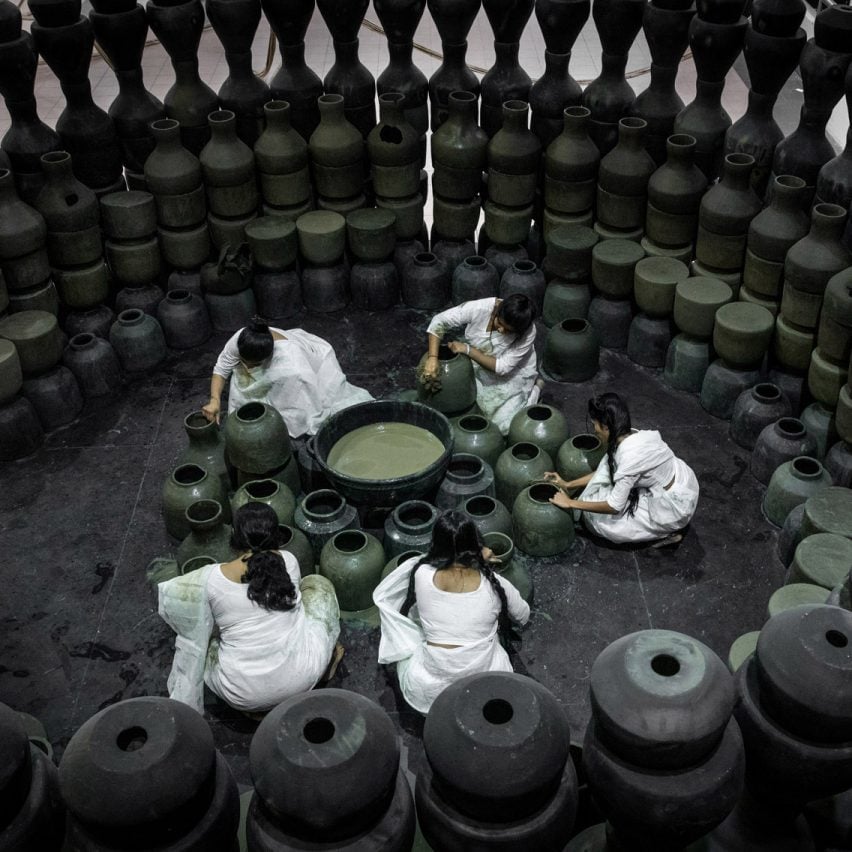
Recipes as Archives by Sumayya Vally in collaboration with Karima Hazim
South African architect Sumayya Vally, together with food creative Karima Hazim of Sunday Kitchen, hosted a Sunday breakfast featuring traditional Lebanese recipes. Vally’s belief that recipes are important archives of culture previously formed her research project for the fifth Istanbul Design Biennial in 2020.
In a follow-up talk, Vally argued that architecture should extend beyond physical structures.
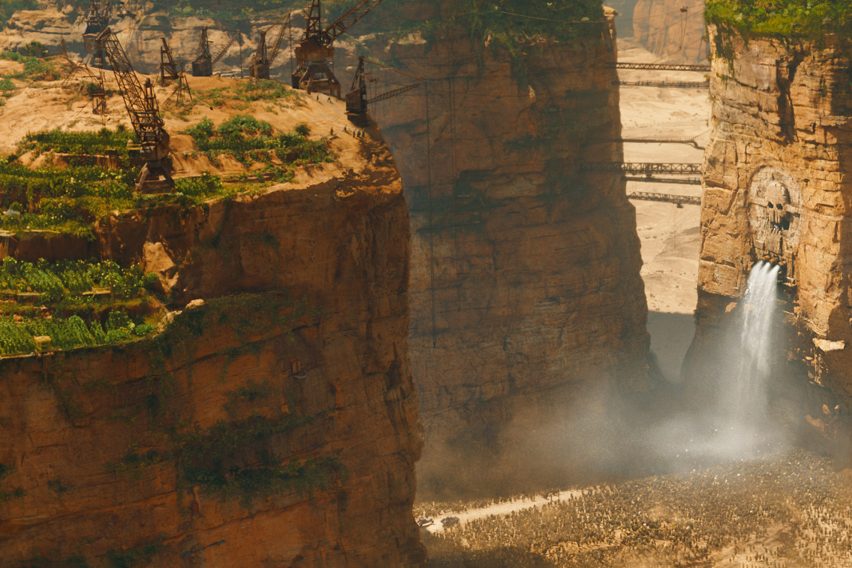
Future Prototypes by Colin Gibson
Production designer Colin Gibson created the sets for post-apocalyptic film franchise Mad Max. In a talk for Sydney Design Week, he described his narrative-led design process, which sees him imagine detailed, fictional histories for the worlds he is building.
“The visions created in films inform the design industry but also, vice versa,” said Butler and Sánchez-Velasco.
“Film-making and storytelling have historically been complicit in the production of spatial, social and political imaginaries; they have shaped desires, ideas of the future and alternative forms of coexistence, while stretching the boundaries of the possible.”
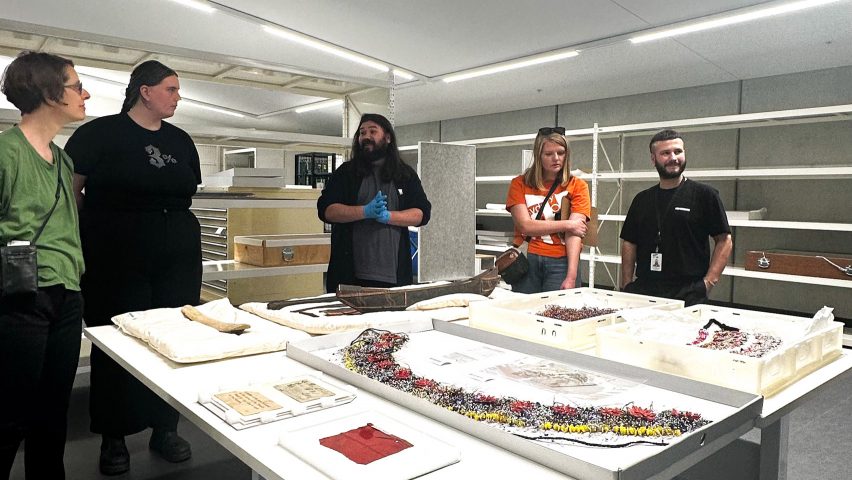
No Space is Empty, curated by Nathan Mudyi Sentance
Powerhouse Museum head of collections, First Nations, Nathan Mudyi Sentance introduced artefacts from indigenous world-making practices.
These include cool burning, an Australian Indigenous land-management practice that works with fire rather than fighting fire, and the Qoliqoli Tabu practice of reef and marine management where people agree to observe a rolling roster of sanctuary areas.
“In engaging with indigenous world-making practices, we can learn from ontologies and epistemologies that have been often silenced or displaced and that can contribute to imagining alternative forms of existence and how to establish more symbiotic relationships with the environment,” said Butler and Sánchez-Velasco.
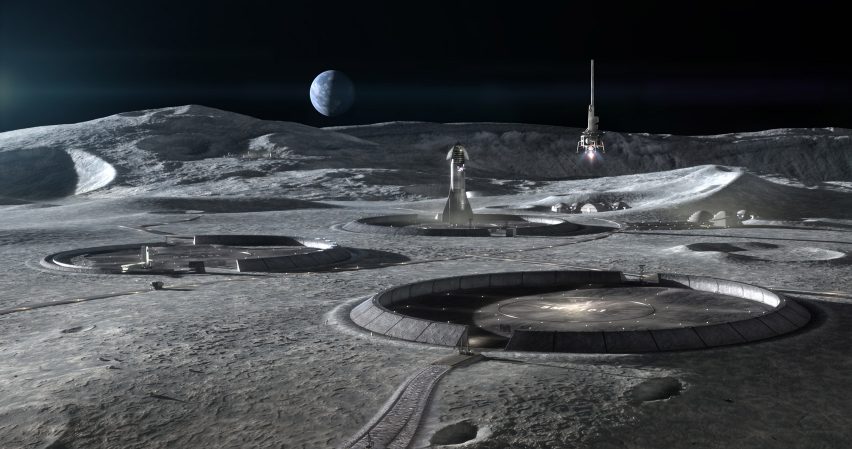
Space Architectures, by Melodie Yashar from ICON
Melodie Yashar, space architect and vice president of building design and performance at construction technologies company ICON, shared her perspective on designing resilient homes for off-world living.
Yashar advocates for open-source construction methods to empower communities to participate in the design process and provide them with the tools to adapt to changing environments.
“As space agencies plan human outposts on the Moon and Mars it is becoming increasingly important to consider the ethics of space settlement, so that we don’t repeat the mistakes made here on Earth,” said Butler and Sánchez-Velasco.
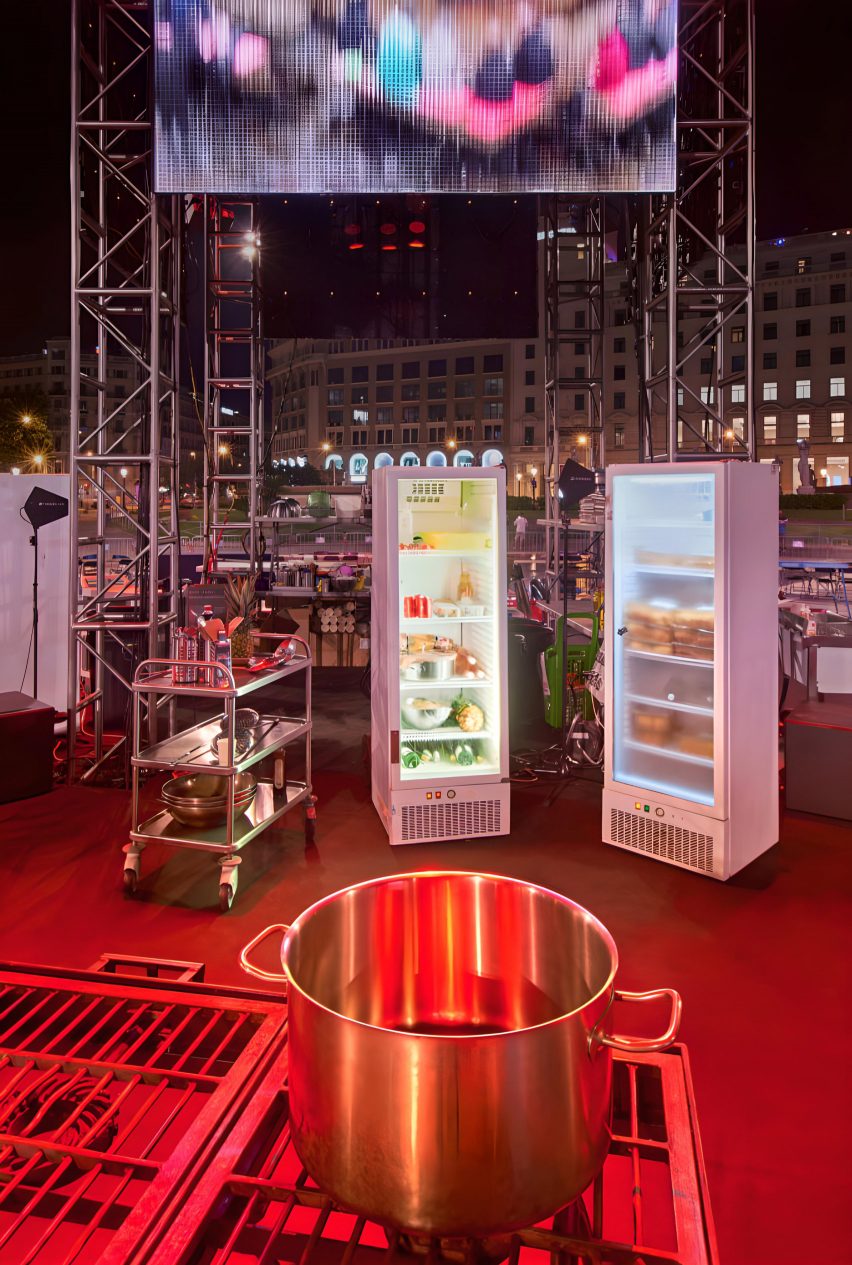
Collective Care by Anna Puigjaner from MAIO
Anna Puigjaner, a researcher and co-founder of Barcelona-based architecture office MAIO, introduced her Kitchenless City research on housing blocks around the world. This focuses on collective kitchens that demonstrate various approaches to organising and distributing domestic spaces as a tool for social transformation.
Puigjaner and her team investigate the spatiality of shared kinships to reimagine potential care systems and interdependencies among diverse individuals and social groups.
“Their work challenges care regimes based on unevenly distributed and often invisibilised care labour while acknowledging the multiplicity of body dispositions in social space depending on age, gender, capacity and race,” said Butler and Sánchez-Velasco.
Sydney Design Week 2o24 takes place from 13 to 19 September 2024 at various locations across Sydney. See Dezeen Events Guide for an up-to-date list of architecture and design events taking place around the world.

